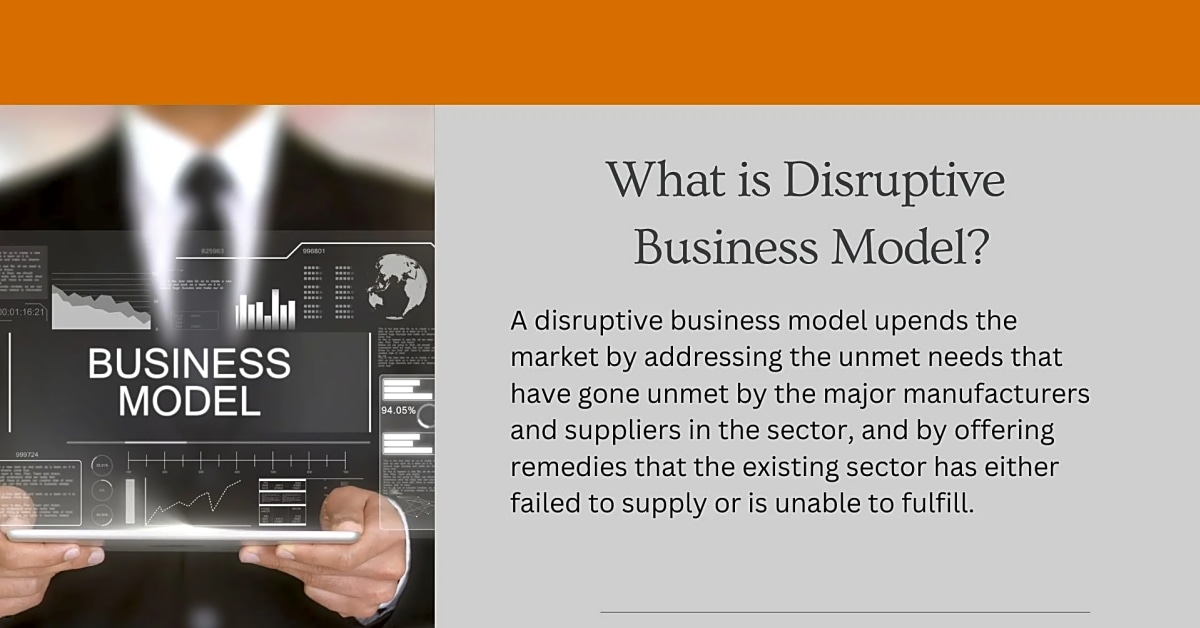Welcome to our article on disruptive business models and innovative strategies for scaling your business. In today’s rapidly evolving business landscape, traditional models are becoming less effective in driving growth and success. As a result, companies are turning to disruptive business models – innovative approaches that challenge the status quo and revolutionize industries. These models not only disrupt existing markets, but also create new ones, providing endless opportunities for growth and expansion. In this article, we will explore the concept of disruptive business models and how they can be effectively implemented to scale your business. Whether you are a startup or an established company, this article will provide you with valuable insights and case studies of successful scaling using disruptive models. So, let’s dive in and discover the power of disruptive business models in driving innovative growth strategies.
As a business owner, you are constantly looking for ways to grow and expand your business. Scaling is a crucial aspect of business development, and it involves implementing strategies and techniques to achieve sustainable growth. In this article, we will explore disruptive business models and how they can help you scale your business effectively.
To understand the significance of disruptive business models, let’s use the example of Uber. When Uber was launched, it completely disrupted the traditional taxi industry by offering a more convenient and cost-effective alternative. This innovative model not only allowed Uber to scale rapidly but also forced traditional taxi companies to adapt or risk becoming obsolete.
Similarly, other successful companies such as Airbnb and Netflix have also utilized disruptive business models to disrupt their respective industries and achieve significant growth. By examining these case studies, we can gain valuable insights into how disruptive business models can drive successful scaling.
So what exactly are disruptive business models? They are innovative strategies that challenge the traditional way of doing things in a particular industry or market. These models typically offer a unique value proposition that sets them apart from their competitors and allows them to capture a significant market share.
One key aspect of disruptive business models is their focus on customer needs and convenience. By identifying pain points or gaps in the market, companies can create disruptive models that offer a better solution for consumers. This not only helps them gain a competitive advantage but also drives customer loyalty and retention.
Now let’s take a look at some case studies of successful scaling using disruptive business models. As mentioned earlier, Uber revolutionized the taxi industry by introducing a ride-sharing platform that allowed customers to book rides at the touch of a button. This disrupted the traditional taxi industry and propelled Uber to become a global leader in the transportation sector.
Airbnb, on the other hand, disrupted the hospitality industry by offering an alternative to traditional hotels. By allowing homeowners to rent out their properties to travelers, Airbnb not only provided a unique experience for customers but also helped homeowners earn extra income. This model proved to be incredibly successful, and Airbnb is now valued at over $100 billion.
Another prime example of disruptive business models is Netflix. By offering a subscription-based streaming service, Netflix disrupted the traditional television and movie industry. This allowed customers to access a wide range of content at their convenience, without the need for cable or satellite subscriptions. This model has been highly successful, and Netflix is now one of the leading entertainment companies in the world.
So how can you implement disruptive business models in your own business? The key is to constantly innovate and keep an eye out for opportunities to disrupt your industry. It’s also important to focus on creating value for your customers and addressing their pain points. By doing so, you can gain a competitive advantage and drive growth for your business.
In conclusion, disruptive business models play a crucial role in scaling businesses and achieving sustainable growth. By learning from successful case studies and implementing these strategies in your own business, you can stay ahead of the competition and drive success in your industry.
Case Studies of Successful Scaling
When it comes to scaling a business, there are few better examples than Uber, Airbnb, and Netflix. These companies have disrupted their respective industries with innovative business models, allowing them to achieve unprecedented levels of growth and success.
Uber, the popular ride-sharing app, has completely transformed the transportation industry. By connecting riders with drivers through a user-friendly app, Uber has made getting around cities easier and more convenient than ever before. This disruptive business model has allowed the company to expand globally and become a household name.
Airbnb, the online marketplace for short-term rentals, has similarly disrupted the hospitality industry. By allowing individuals to rent out their homes or spare rooms to travelers, Airbnb has created a new way for people to travel while also providing an alternative to traditional hotels. This business model has enabled the company to rapidly expand and become one of the largest accommodation providers in the world.
Lastly, Netflix has revolutionized the entertainment industry with its disruptive business model. By offering a vast library of movies and TV shows for a monthly subscription fee, Netflix has disrupted traditional cable and TV networks. This model has allowed the company to grow into a global streaming giant, producing its own original content and competing with major Hollywood studios.
In conclusion, disruptive business models are crucial for scaling a business. By challenging traditional methods and adopting innovative strategies, businesses can achieve sustainable growth and stay ahead of the competition. Through the case studies provided and the tips and advice given, you can begin implementing disruptive business models in your own business and experience significant growth.

